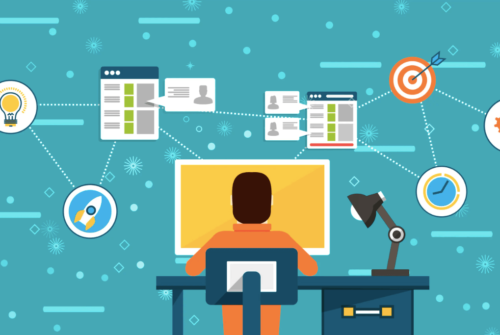
Why You Should Update Your Legacy Systems
Legacy systems are information systems critical for daily business operations. If they are outdated, it could cause undue confusion and even hamper your business. It’s usually rare for a company to replace its system but frequent upgrades are mandatory. The tools and systems you have relied on for years might work for your business today and tomorrow.
However, when you are bringing a new partner on board or maybe migrating an app to cloud, taking a big data initiative, or if your legacy system doesn’t support that, you need to upgrade. Now that I have kids, I have upgraded to one of Spectrum TV plans that include kids’ channels. Depending on your business needs, you might want to have a closer look at your current legacy system, too.
Consider these if you want solid reasons for an upgrade:
#1: Security Threats
An outdated system is vulnerable to data breaches and malware. They are less resistant to cyber-attacks. What seemed 5 years ago may not be reliable in the present time. A widespread reason why legacy systems aren’t secure is vendors stop the support. As a result, the system lacks new modules, patches, updates, functionality and more.
#2: Slow Performance
If your legacy system is slow, it has multiple glitches and it’s taking ages to perform standard tasks, it needs to go. This means your software is outdated or it’s losing quality Spectrum TV plans. To improve it, you must upgrade the performance and efficiency of the system. Start by improving software quality. You would also have to re-engineer and improve the infrastructure.
So what if I have to wait several minutes to have a report load. This might seem like a small thing but when there’s a business urgency, it can cost you big time.
#3: No Mobile Version
If you haven’t implemented the mobile app strategy in your daily business operations, you are way behind the trends.
If your business processes cannot be accessed from a mobile device, you could be losing customers. Flexibility is crucial in every working field. If you wish to improve your business performance, you must consider migrating and using mobile devices.
#4: Changing User Demands and Expectations
Let’s say two businesses are offering the same product. What will encourage a customer to choose one over the other? Customer experience for sure!
Once you update your legacy system, you are not inhibited by the technological constraints. Hence, you can deliver more value to your customers. Business customers want reliability and speed. You can offer a seamless user experience through integration, mobile readiness, and consolidation.
#5: Better Performance
Upgrading the legacy system has both opportunities and drawbacks. Modernization offers businesses the option to use what they have and create something new. Once you identify redundancies in the app, you can improve performance, streamline the business and provide better IT solutions.
It’s important to discover bottlenecks and inefficiencies to give your business a chance to address the issues that hamper productivity.
#6: Better Application Usability
Modern legacy systems are intuitive and they focus on usability and user interface. Their hardware and networking capabilities are advanced as well. You get access to the latest tools and functions. This eliminates bumps in the workflow and improves responsiveness.
#7: Hidden Costs and Lost Business
Wondering what spikes the cost of a legacy system? Outdated hardware, outages, staff training, and system inefficiency and more. These are just a few to name. You will come across a number of more hidden expenditures. They aren’t usually stated in the company’s budget. For instance brand image, customer loyalty and employee satisfaction.
You could also be at the sake of losing customers. 90 percent of customers prefer switching providers if their company is using outdated tech. Can you risk losing customers just because your legacy system is inefficient?
#8: Compatibility
You can’t run new functions and tools with existing business software without complications. Old systems require an excessive amount of customization and lengthy workarounds. Your efforts could be wasted in establishing compatibility with the old system.
You are better off using an upgraded legacy system that can integrate apps and tools essential for your business Spectrum TV plans.
#9: Gain the Trust of Stakeholders
An upgraded legacy system can offer you immediate returns. You get scalability and portability. You get to save money and fund the latter parts of your business. You gain the trust of stakeholders. You get more time to focus on your business objectives, boost sales, increase profits and eventually engage with more customers.
#10: New technology
New technology should be a compelling enough reason to update your legacy system. Cloud-based systems are more capable. You get access to sophisticated capabilities without bearing a higher capital expense.
To upgrade, you might just have to get in touch with your vendor. It’s pretty much similar to clicking on the contact Spectrum button when you want to upgrade your plan.




